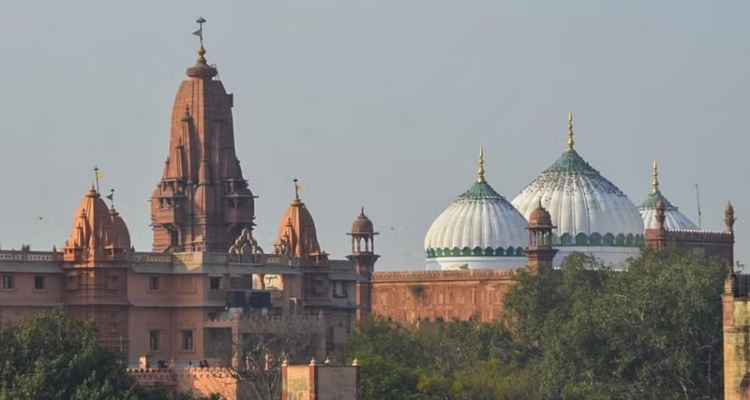
The Allahabad High Court on Wednesday has dismissed an application seeking to recall its January 11 order that consolidated all suits filed by the Hindu side in the Krishna Janmabhoomi-Shahi Idgah dispute in Mathura.
The request was made by counsel Tasneem Ahmadi, representing the Muslim side, who argued that the matter was premature and that cases should not be consolidated before issues are framed and evidence is collected.
Opposing the application, the Hindu side’s counsel contended that the court has the authority to consolidate cases when the reliefs sought, the property in question, and the defendants are the same. They alleged that the purpose of the application was to delay the court proceedings.
On August 1, 2024, the High Court had directed the framing of issues; however, no issues have been framed to date, and the court has primarily been hearing applications. Hari Shanker Jain, representing the Hindu plaintiffs, stated that consolidating the cases does not impede the right to contest them individually.
He emphasized that the consolidation of cases is a discretionary power of the court and cannot be challenged by any party.
The court has scheduled the next hearing for November 6.
In its January 11 ruling, the High Court consolidated 15 suits filed by Hindu plaintiffs “in the interest of justice.”
Earlier, on August 1, the court rejected a plea from the Muslim side that challenged the maintainability of the Hindu suits, affirming that all suits are indeed maintainable.
Additionally, the court ruled that these suits are not barred by the Limitation Act, the Waqf Act, or the Places of Worship Act of 1991, which prohibits the alteration of any religious structure as it existed on August 15, 1947.
The Hindu plaintiffs are seeking the removal of the Shahi Idgah structure and possession of the site, which they claim was built on the ruins of a temple at the birthplace of Lord Krishna, originally constructed during the Mughal era by Emperor Aurangzeb.
The dispute continues to be a contentious issue, highlighting the complexities surrounding religious sites in India and the legal challenges involved in such cases.




